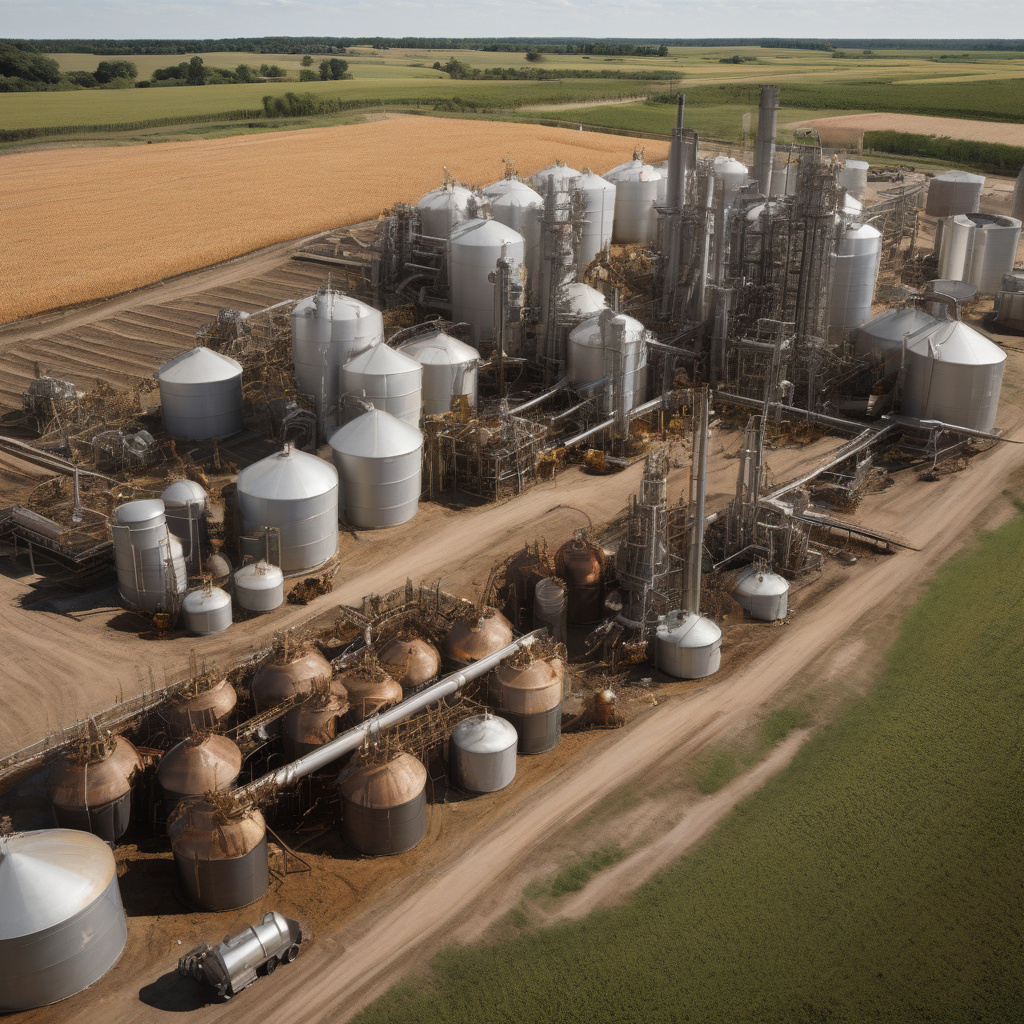Farm waste bio-oil may plug orphaned US oil wells and trap carbon for decades
US researchers have found that transforming plant waste like corn stalks and forest debris into bio-oil could hold the key to addressing two major environmental challenges simultaneously. By converting farm waste into bio-oil, a viable solution emerges to plug orphaned oil wells in the United States while also effectively trapping carbon for decades.
Orphaned oil wells, which are no longer in use and lack proper sealing, pose significant environmental risks. These wells can leak methane, a potent greenhouse gas, into the atmosphere, contributing to climate change. In addition to environmental concerns, orphaned wells can contaminate groundwater and soil, posing threats to human health and local ecosystems. The process of transforming farm waste into bio-oil offers a promising opportunity to address these challenges.
Bio-oil, also known as pyrolysis oil, is a renewable energy source derived from the thermal decomposition of organic materials in the absence of oxygen. In this case, plant waste such as corn stalks and forest debris serves as the feedstock for producing bio-oil. The conversion process not only produces a valuable energy source but also sequesters carbon that would otherwise be released into the atmosphere.
By utilizing farm waste to generate bio-oil, researchers have identified a sustainable means of plugging orphaned oil wells. The bio-oil can be injected into these wells, effectively sealing them off and preventing the escape of methane and other greenhouse gases. This innovative approach not only mitigates the environmental impact of orphaned wells but also repurposes agricultural waste in an environmentally friendly manner.
Moreover, the carbon trapped within the bio-oil offers long-term carbon sequestration benefits. When the bio-oil is injected into orphaned wells, the carbon remains locked underground for extended periods, reducing the overall carbon footprint. This dual-purpose solution not only helps remediate environmental hazards but also contributes to climate change mitigation efforts.
In addition to addressing orphaned oil wells, the utilization of farm waste for bio-oil production presents opportunities for sustainable energy generation. As the world transitions towards renewable energy sources, bio-oil offers a promising alternative to traditional fossil fuels. By harnessing the energy potential of organic waste materials, communities can reduce reliance on non-renewable resources and promote a more sustainable energy future.
The research conducted by US scientists underscores the importance of innovation in addressing pressing environmental challenges. By leveraging bio-oil derived from farm waste, solutions emerge for mitigating the impact of orphaned oil wells and sequestering carbon emissions. This approach not only demonstrates the potential of bio-based technologies but also highlights the interconnectedness of environmental issues and the value of interdisciplinary solutions.
In conclusion, the transformation of farm waste into bio-oil represents a significant step towards environmental sustainability and carbon sequestration. By repurposing agricultural residues to plug orphaned oil wells and trap carbon underground, researchers are paving the way for a more sustainable energy future. As the world continues to prioritize environmental stewardship and climate action, innovative solutions like farm waste bio-oil are poised to play a crucial role in addressing complex environmental challenges.
environment, sustainability, bio-oil, carbon sequestration, orphaned wells












